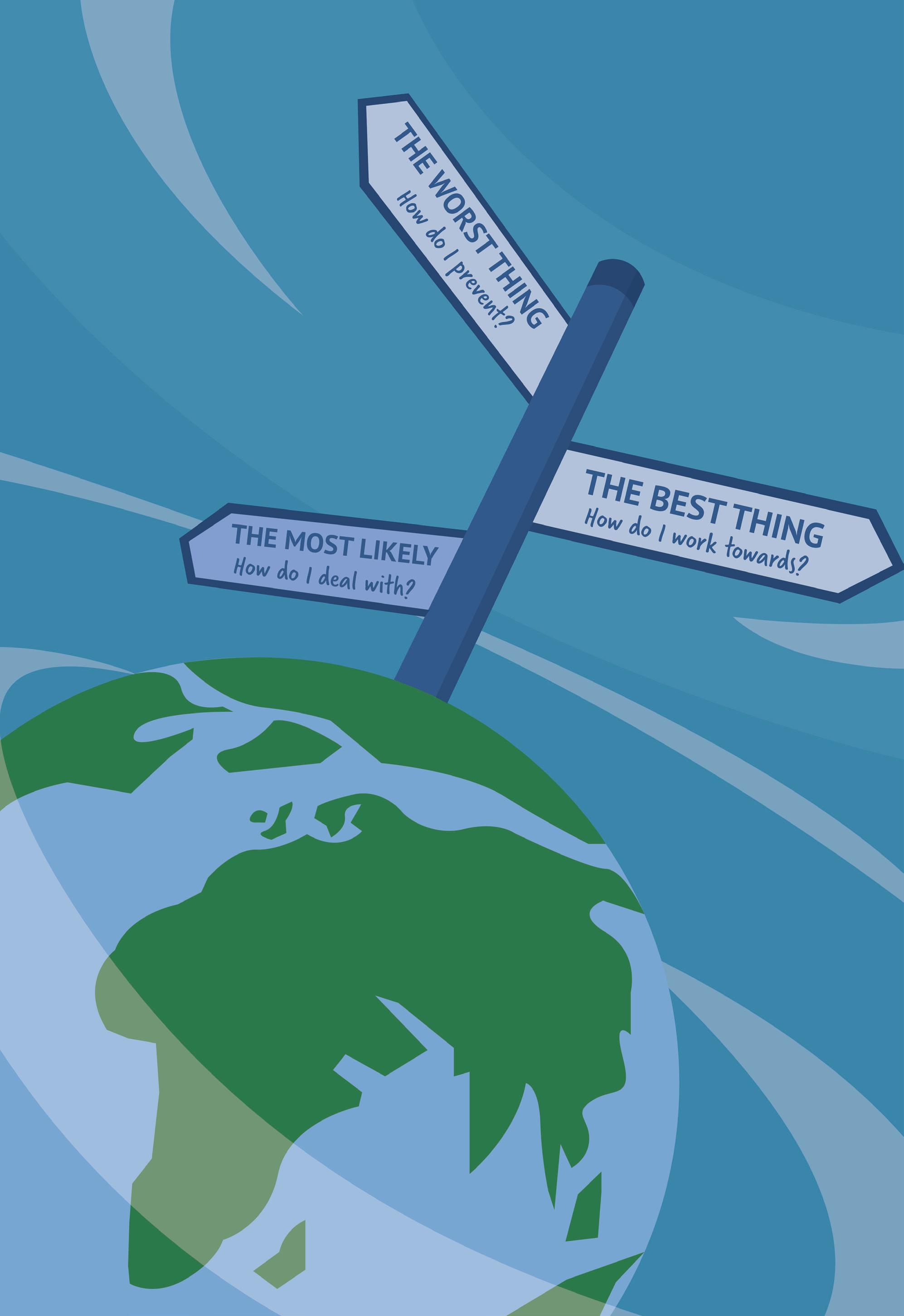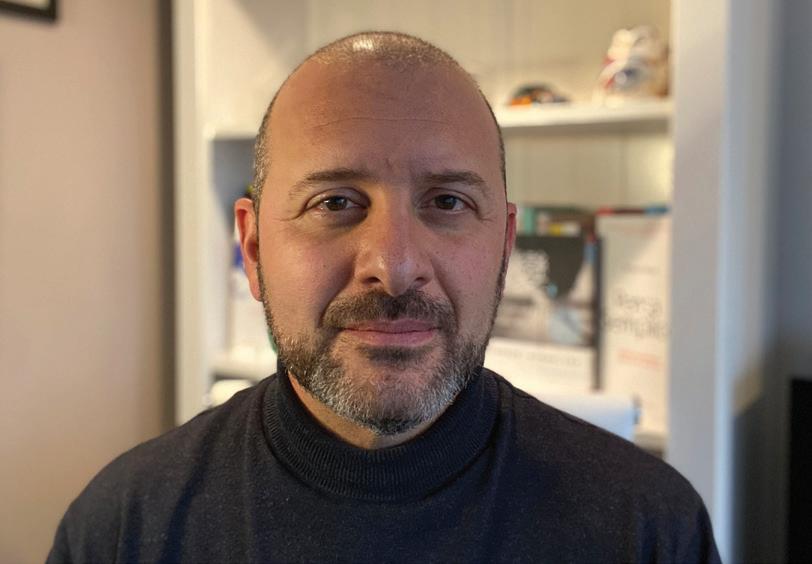
6 minute read
Yes, we can
From chaos to control: the value of can-do change
Richard Gerver is a well-known speaker, author and former headteacher. He describes how his experience of the global pandemic has altered his perspective on learning.
At first it was all about toilet rolls. That was when I knew something about this Covid-19 crisis was seriously going to disrupt our lives. It was the end of February and I was on my way back from working in Australia. I was in a hotel room at Tullamarine Airport, just outside of Melbourne, the night before my flight home. I turned on the TV in my room and saw a live press conference being given by Scott Morrison, the prime minister. It was a day or two after people had started stripping the shelves of toilet paper; quilted, moisturising, absorbent, you name it, it was gone. The prime minister had to calm the situation. Mobile phone footage had been posted on social media of people fighting with each other to get their hands on the last few packs. The videos had gone viral and like the virus itself had spread across the world. The panic began because some Australians assumed, wrongly, that their supplies were manufactured in China – and as a result of the lockdowns there they had feared that the supply chain would be cut and that their bottoms would suffer. Morrison appealed for calm and to explain that over 90 per cent of Aussie supplies were in fact domestically produced. It was, however, too late. Within a few days of returning home to the UK, people here had seen the videos and, without finding out why, started to do the same thing. What is extraordinary is that this was before lockdown was even a thing in the UK. As the virus hit our shores and the magnitude of the crisis came in to focus my schoolboy snigger about the toilet paper was replaced with a sort of mental paralysis. My work evaporated; my wife, who is a headteacher, was faced with closing her school; and my daughter, a young teacher, was suddenly asked to move her teaching online.
From paralysis to denial to despair The paralysis lasted for a week or so; it was weird, something I had only ever experienced during a sudden family bereavement. I was reading and watching the news, but nothing was going in; I was speaking to my wife and daughter, but again I was absorbing nothing. The paralysis gave way to denial. As the numbness subsided, I simply refused to believe that this thing was real, or that it would impact on us – or if it did, it wouldn’t be for as long or be as bad as the experts were saying. Eventually, though, the hard truth hit home and denial was replaced with anger. I needed to find someone to blame: politicians, scientists, the Chinese… even my neighbours, who were definitely breaking the rules. Within a couple of days, though, I found myself in a fourth phase, the one I would be stuck in for a while. I felt a listlessness, a loss of hope. I found it hard to get up, to go to bed, to care. Despite trying everything, I had lost any sense of control over what was happening in our lives. At best I was being reactive and doing irrational things; suddenly I was hoarding toilet paper and bulk-buying kidney beans – and I hate kidney beans.
In search of certainty On reflection, it was clear that I was not alone, and the irrational behaviour of so many, I realised, stems from the way we are educated and raised. The actions so many of us were taking were desperate attempts to find a level of control, of security, of certainty. From an incredibly early age we are taught to seek out certainty and when we find it, to protect it. As we get older, it becomes the goal and the symbol of a successful life: good and steady, safe employment; a home with a mortgage; a sound pension. We are not good with change and uncertainty, which is strange, because we weren’t born fearful of the unknown; in fact, as infants most of our experiences are new, uncertain and ever-changing – and we don’t just survive those early years, but thrive in them. Apparently, we take in somewhere between 70 and 75 per cent of everything we learn in our lifetime before we are five years old. As we get older, we become increasingly averse to change and risk because we are taught to believe that certainty – getting stuff right, not making mistakes or taking risks – is the route to security and a happy life. Somewhere along the way, we forget that you only ever learn something new at the point of a mistake or the realisation that you do not know something or can’t do something.
Cultivating the can-do and new ways of thinking I eventually pulled myself out of my Covid-19 funk by realising that I needed to reconnect with my inner toddler. I knew that I had to stimulate my curiosity, not be frightened to stick my head above the parapet, and explore the world as it was becoming. I started to engage and explore a little, looking at what I could do rather than what I could not. I started working through the six questions first developed by the founding father of positive psychology, Martin Seligman: • What is the worst thing that could happen? • What could I do to prevent the worst thing from happening? • What is the best thing that could happen? • What can I do to help the best thing to happen? • What is the most likely thing to happen? • What can I do to deal with the most likely thing happening?
The point of the questions is to help you work towards a feeling of control by stimulating your curiosity and creative thinking. It helps you to problem-solve in the way very young children do subconsciously. They do it through play and discovery. Not only did the process make me feel better but it also meant that gradually I became more productive and engaged. For me there are significant lessons here for learning, for schools and how we use design to stimulate a new way of thinking. The challenge is clearer now than it ever has been: the world is turning and changing faster than ever and it will not slow down; we will have to cope with uncertainty more and more; we will need to be agile, comfortable with a lack of control and at ease with the new. To do that and to ensure that we don’t all end up living in toilet-paper igloos, we need to ensure that our children live in educational settings that can change and adapt, which stimulate curiosity and constant questions. We need to ensure that our pupils develop mental agility and are comfortable with the unknown.
Richard Gerver is author of the international bestselling books Simple Thinking and Change: Learn to Love it, Learn to Lead it. He is now regarded as one of the world’s most original and authentic thinkers around human leadership and organisational transformation.











